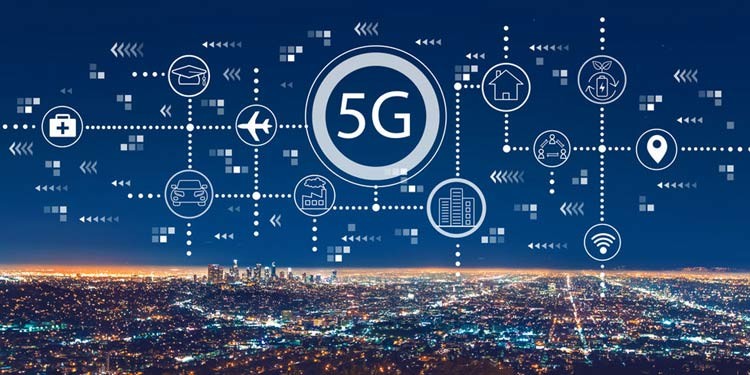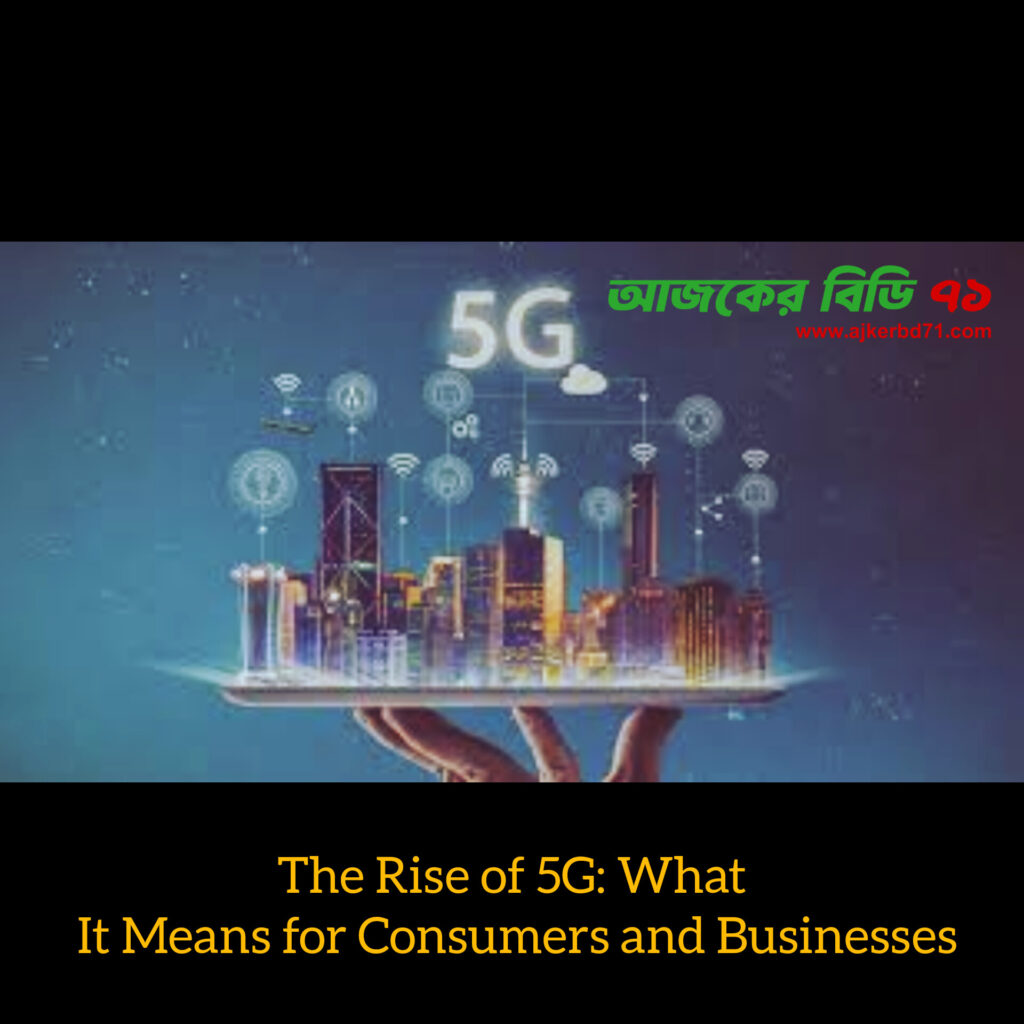5G, the fifth generation of wireless technology, has been hailed as a game-changer for both consumers and businesses alike. Promising faster speeds, lower latency, and greater connectivity, 5G is poised to revolutionize industries, enhance daily life, and open up new opportunities in ways that were once thought impossible.
The Future of 5G: What It Means for Consumers and Businesses

What is 5G?
Before diving into the future, it’s essential to understand what 5G is. 5G is the latest standard for mobile communications, designed to improve upon 4G LTE in virtually every way. It offers faster data transfer rates (up to 100 times faster than 4G), lower latency (meaning less delay in data transmission), and the ability to connect many more devices simultaneously. These advancements are not just incremental; they represent a significant leap forward that can enable new technologies and business models.
The Impact of 5G on Consumers
For consumers, the arrival of 5G promises a host of improvements in day-to-day life, from enhanced entertainment experiences to smarter home devices. Here’s a closer look at what 5G will mean for individuals:
- Faster Speeds and Seamless Streaming
With 5G, consumers will experience faster download and upload speeds, which means smoother streaming of high-definition content, quicker downloads of large files, and more responsive online gaming. Whether streaming 4K movies on Netflix, engaging in multiplayer gaming, or simply browsing the web, the enhanced speed and reliability of 5G will make all these activities smoother and more enjoyable. - Enhanced Mobile Experiences
The improved network performance of 5G will enable more immersive mobile experiences. Augmented reality (AR) and virtual reality (VR) applications will become more mainstream, allowing consumers to engage with new forms of entertainment, shopping, and communication. Imagine trying on clothes virtually before purchasing them online, or attending a live concert from the comfort of your living room with a VR headset. 5G will make these experiences possible. - Smart Home Revolution
The Internet of Things (IoT) is set to expand rapidly with the advent of 5G, connecting everything from smart thermostats and refrigerators to wearable health devices. With 5G’s increased capacity to handle multiple connections, smart homes will become even more integrated and efficient. Appliances will communicate with each other more seamlessly, homes will be more energy-efficient, and consumers will have greater control over their living environments. - Improved Healthcare Access
Telemedicine, remote patient monitoring, and mobile health applications will become even more accessible with 5G. With faster data speeds and low latency, doctors will be able to conduct virtual visits more effectively, and health monitoring devices will provide real-time data. This will be especially impactful for rural and underserved areas, where access to healthcare can be limited. - Greater Connectivity on the Go
The benefits of 5G won’t just be confined to homes and offices. On-the-go connectivity will improve significantly, making long car rides, commutes, and travel more enjoyable. Whether streaming media, accessing cloud services, or staying connected with loved ones, 5G will ensure that consumers can enjoy seamless connectivity no matter where they are.
The Impact of 5G on Businesses
For businesses, 5G represents not only an opportunity to improve operations but also to innovate and create new products, services, and experiences. Here’s how 5G will transform industries:
- Increased Productivity and Efficiency
Businesses will benefit from faster communication and data transfer, enabling more efficient operations. For instance, manufacturers can deploy smart factories with connected sensors and machines that communicate in real-time, optimizing production and reducing downtime. Logistics companies will be able to track and manage fleets more effectively, leading to faster delivery times and better customer service. - Empowering Remote Work
The COVID-19 pandemic accelerated the shift towards remote work, and 5G will further support this trend. With faster, more reliable internet access, remote employees will be able to work more efficiently, collaborate seamlessly, and access cloud-based tools with ease. 5G will also enable new forms of virtual collaboration, such as immersive video conferencing and remote training sessions using AR and VR technologies. - Enhanced Customer Experiences
Businesses will be able to leverage 5G to create more personalized and interactive customer experiences. Retailers, for example, can use AR to allow customers to visualize products in their homes before making a purchase. Hospitality businesses can provide immersive virtual tours of hotels or resorts. These enhanced experiences will help businesses stand out in competitive markets and build stronger relationships with their customers. - Revolutionizing Industries with IoT
The expansion of IoT, powered by 5G, will revolutionize industries such as healthcare, agriculture, and transportation. In healthcare, IoT devices will enable real-time patient monitoring, making it easier to detect issues early and provide timely care. In agriculture, smart sensors and drones will allow farmers to monitor crops more effectively, optimizing irrigation and reducing waste. In transportation, connected vehicles will communicate with each other and with infrastructure to improve traffic flow and reduce accidents. - Enabling New Business Models
Perhaps the most exciting aspect of 5G for businesses is the opportunity to create entirely new business models. For example, autonomous vehicles, made possible by 5G’s low latency, could transform the logistics industry. Smart cities, with connected infrastructure and services, could change the way people live and work. The ability to process massive amounts of data quickly and reliably will unlock new possibilities in artificial intelligence, machine learning, and data analytics, allowing businesses to innovate in ways that were previously unimaginable.
Challenges and Considerations
While the potential of 5G is vast, there are challenges that need to be addressed. The rollout of 5G infrastructure is complex and costly, requiring significant investment from telecom companies and governments. There are also concerns about privacy and security, as the increased connectivity of devices could make networks more vulnerable to cyberattacks. Additionally, ensuring that 5G is accessible to all, including rural and underserved areas, will be crucial to realizing its full potential.
The Future of 5G: What It Means for Consumers and Businesses

Conclusion
The future of 5G is incredibly promising, with the potential to transform industries, improve everyday life, and unlock new innovations. For consumers, 5G will bring faster speeds, smarter devices, and more immersive experiences. For businesses, it will drive productivity, enable new business models, and open up new markets. However, as with any technological advancement, challenges will need to be addressed to ensure that 5G reaches its full potential. As 5G continues to roll out across the globe, it’s clear that this technology will play a central role in shaping the future of our connected world.
The Future of 5G: What It Means for Consumers and Businesses

Comments